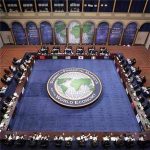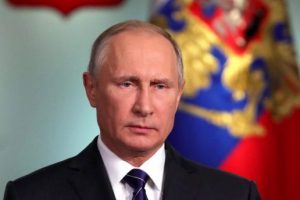 Brazil and China will work towards using their own currencies in trade transactions rather than the US dollar, according to Brazil’s central bank and aides to Luiz Inácio Lula da Silva, Brazil’s president.
Brazil and China will work towards using their own currencies in trade transactions rather than the US dollar, according to Brazil’s central bank and aides to Luiz Inácio Lula da Silva, Brazil’s president.
The move follows recent Chinese challenges to the status of the dollar as the world’s leading international currency.
Mr Lula da Silva, who is visiting Beijing this week, and Hu Jintao, China’s president, first discussed the idea of replacing the dollar with the renminbi and the real as trade currencies when they met at the G20 summit in London last month.
An official at Brazil’s central bank stressed that talks were at an early stage. He also said that what was under discussion was not a currency swap of the kind China recently agreed with Argentina and which the US had agreed with several countries, including Brazil.
“Currency swaps are not necessarily trade related,” the official said. “The funds can be drawn down for any use. What we are talking about now is Brazil paying for Chinese goods with reals and China paying for Brazilian goods with renminbi.”
Henrique Meirelles and Zhou Xiaochuan, governors of the two countries’ central banks, were expected to meet soon to discuss the matter, the official said.
Mr Zhou recently proposed replacing the US dollar as the world’s leading currency with a new international reserve currency, possibly in the form of special drawing rights (SDRs), a unit of account used by the International Monetary Fund.
In an essay posted on the People’s Bank of China’s website, Mr Zhou said the goal would be to create a reserve currency “that is disconnected from individual nations”.
In September, Brazil and Argentina signed an agreement under which importers and exporters in the two countries may make and receive payments in pesos and reals, although they may also continue to use the US dollar if they prefer.
An aide to Mr Lula da Silva on his visit to Beijing said the political will to enact a similar deal with China was clearly present. “Something that would have been unthinkable 10 years ago is a real possibility today,” he said. “Strong currencies like the real and the renminbi are perfectly capable of being used as trade currencies, as is the case between Brazil and Argentina.”
In what was interpreted as a sign of Chinese concern about the future of the dollar, the governor of China’s central bank proposed in March that the US dollar be replaced as the world’s de-facto reserve currency.
In an essay posted on the People’s Bank of China’s website, Zhou Xiaochuan, the central bank’s governor, said the goal would be to create a reserve currency ”that is disconnected from individual nations” and modelled on the International Monetary Fund’s special drawing rights, or SDRs.
Economists have argued that while the SDR plan is unfeasible now, bilateral deals between Beijing and its trading partners could act as pieces in a jigsaw designed to promote wider international use of the renminbi.
Any move to make the renminbi more acceptable for international trade, or to help establish it as a regional reserve currency in Asia, could enhance China’s political clout around the world.
Jonathan Wheatley
sursa: ft.com












Adauga comentariu